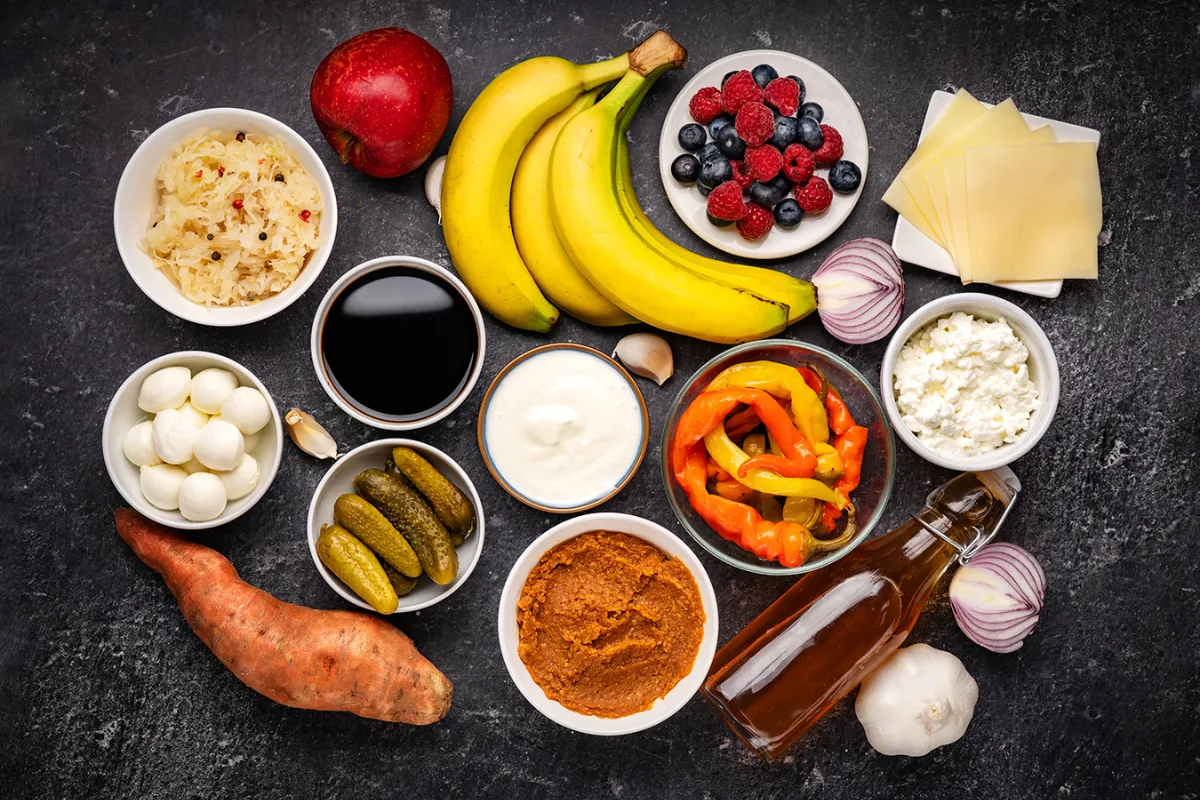Prebiotics vs Probiotics: In the journey towards a healthier gut, it’s crucial to distinguish between two superheroes: Prebiotics and Probiotics. Dr. Priyanka Shehrawat sheds light on their unique roles in a video that’s as enlightening as it is essential for your well-being.
Check out the video here:
Prebiotics vs. Probiotics
Think of probiotics as friendly bacteria, the residents who keep our gut functioning smoothly. They fight off harmful bacteria, aid digestion, and even boost our immune system. You’ll find them in fermented foods like yogurt, buttermilk, and the batter of our beloved idli and dosa.
Prebiotics, on the other hand, aren’t living organisms themselves. They’re a type of dietary fiber that acts like food for the good bacteria in your gut, helping them thrive and multiply. Think of them as the fertilizer that nourishes your gut garden! Garlic, onions, bananas, and oats are all packed with prebiotic goodness.
Foods Rich in Prebiotics and Probiotics
Probiotic-Rich Foods:
- Curd (Yogurt): Crafted through fermentation, yogurt stands as a natural haven for Probiotics.
- Buttermilk: A beloved probiotic elixir in Indian households, buttermilk is a refreshing choice for nurturing gut health.
- Idli and Dosa Batters: Beyond being culinary delights, these batters are potent sources of essential probiotics.
- Fermented Vegetables: Delightfully tangy homemade pickled vegetables serve as a delectable means of infusing probiotics into our diet.
Prebiotic-Rich Foods:
- Garlic: This aromatic gem not only elevates our dishes but also serves as a powerhouse of prebiotics, enhancing our gut flora.
- Onions: With their rich prebiotic fibers, onions offer a flavorful boost to our gut health.
- Bananas: Nature’s perfect snack, bananas contain resistant starch, a prebiotic fiber that nourishes our gut bacteria.
- Oats: As a grain abundant in beta-glucan, oats serve as a delectable source of prebiotic goodness, supporting our gut ecosystem.
Incorporating these prebiotic and probiotic-rich foods into our diet not only tantalizes our taste buds but also nurtures our gut, paving the way for improved digestion and overall well-being.












